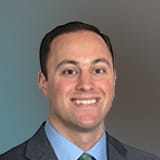On Friday, April 10, the U.S. Department of Health and Human Services (HHS) announced that it would immediately begin paying out $30 billion in relief funds to Medicare-enrolled healthcare providers across the country.
The $30 billion is the first distribution from the $100 billion Public Health and Social Services Emergency Fund that was created by the Coronavirus Aid, Relief, and Economic Security (CARES) Act to provide financial assistance to hospitals, physicians, and other healthcare providers impacted by the COVID-19 crisis.
The money is being distributed to all Medicare-enrolled providers proportionally based on their share of 2019 Medicare fee-for-service (FFS) reimbursements. Total Medicare FFS payments in 2019 were $484 billion, so this $30 billion in payments should average out to a payment of just over three weeks of Medicare reimbursement per provider (6.2 percent of their annual Medicare payments).
According to HHS, funds are “being distributed immediately – with payments arriving via direct deposit beginning April 10, 2020.” Critically, these are payments, not loans, and will not need to be repaid.
To speed the delivery of funds, HHS has partnered with UnitedHealth Group (UHG) to make payments via Automated Clearing House account information on file with UHG or the Centers for Medicare & Medicaid Services (CMS). The automatic payments will come to providers via Optum Bank with "HHSPAYMENT" as the payment description. Providers who normally receive a paper check for reimbursement from CMS will receive a paper check in the mail for this payment as well, within the next few weeks.
All relief payments will be made to a provider’s billing organization according to its Taxpayer Identification Number (TIN). Thus, individual physicians in a group practice are unlikely to receive individual payments directly, as the group practice will receive the payment as the billing organization. According to HHS, “providers should look to the part of their organization that bills Medicare to identify details on Medicare payments for 2019 or to identify the accounts where they should expect relief payments.”
While the funds are not loans and will not have to paid back, HHS has tied some restrictions to acceptance and use of the funds. Within 30 days of receiving payment, providers must sign an attestation confirming receipt of the funds and agreeing to certain Terms and Conditions, which include restrictions on out-of-network charges for COVID-19 patients.
In its press release, HHS acknowledged that these funds will disproportionately benefit providers and specialties that serve large numbers of traditional Medicare patients. As such, HHS said that its plans for dispensing the remaining $70 billion in the fund will involve “targeted distributions that will focus on providers in areas particularly impacted by the COVID-19 outbreak, rural providers, providers of services with lower shares of Medicare reimbursement or who predominantly serve the Medicaid population, and providers requesting reimbursement for the treatment of uninsured Americans.”
Because these payments do not have to be repaid and this program does not require an initial application, this announcement is very welcome news for many physician practices. Beyond these payments, HHS and other federal agencies have recently launched several other key CARES Act programs that are intended to help healthcare providers in these difficult times, including:
- SBA Paycheck Protection Program: This Small Business Administration (SBA) program, which offers businesses with less than 500 employees (which include many physician groups) potentially forgivable loans to pay two-months of certain fixed costs, is up and running and despite a rocky rollout, the SBA said this weekend that 725,000 applications representing more than $182 billion in loan commitments have been approved.
- CMS Advance Payment Program: Last week, CMS announced that at it has already delivered more than $51 billion in advanced payment loans to healthcare providers through this program that offers physicians a loan in the amount of three months of their average Medicare payments, with the repayment process beginning four months from the original payment date.
- HRSA Health Center Supplemental Grant Program: Last week, the Health Resources and Services Administration (HRSA) announced awards of $1.32 billion to our nation’s community health centers, available immediately without an upfront application with an average award per center totaling $950,000.
Through these programs and several others, billions of dollars in federal aid from the $2.2 trillion CARES Act have begun flowing to our nation’s healthcare providers. Still, most stakeholders acknowledge that current efforts will be insufficient to withstand the breadth of this crisis.
In response, members of Congress are already discussing the "next" round of coronavirus relief legislation. Although those discussions are early and evolving, and package is likely to provide another round of funding for some of the key CARES Act programs. Additionally, more healthcare specific relief and regulatory reforms are possible, so stay tuned.
Meet NextGen Ambient Assist, your new AI ally that generates a structured SOAP note in seconds from listening to the natural patient/provider conversation.
Read Now